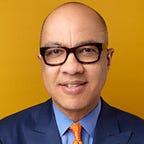Nothing about us without us: Including the presidential debates
Tonight, Detroit hosts the first of two primary debates.
If it’s anything like the last two, we can expect four hours of sound bites, as the 20 candidates answer questions from multiple moderators.
And yet, as the candidates work to make an impression, we, the people, must demand that our prospective leaders — and our public conversation — get more inclusive.
On my mind is one community that has been notably absent from the current national debate, despite the fact that it includes people in all 50 states, of all genders, races, religions, incomes, and identities: people with disabilities.
In the first two debates, this community was not mentioned once. And while the moderators and candidates declined to make the time, the neglect transcends the debate stage.
One recent study by the Miami Lighthouse for the Blind and Visually Impaired highlighted in TIME found that none of the 2020 candidates’ websites is fully accessible to people with disabilities.[i] Whether they neglect the visually or hearing impaired, the candidates fail to serve — or speak to — a vast cross section of the population.
Moreover, our leaders will not find real policy solutions on major issues facing the country if they do not consider the disability community — because living with a disability exacerbates every form of inequality a person faces, be it related to race or gender or economic opportunity.
As Americans, if we care about health care or pre-existing conditions, we should care about the one in three disabled young adults who lack access to a consistent health care provider.[ii] If we care about voting rights, we cannot forget about the millions of Americans disenfranchised by inaccessible polling places.[iii] If we care about solving mass incarceration, we must remember the 750,000 disabled Americans who are incarcerated right now.[iv] The list goes on and on.
In short, if we care about justice, then we should be talking about disability justice.
Fortunately, there’s a way to do this better. The disability rights movement has a powerful mantra: “Nothing about us, without us.” These words should guide all those interested in serving the country and working to make a more equal America.
For our part, at the Ford Foundation, we already are taking this idea to heart. We’ve joined forces with 14 other philanthropic organizations to establish the Presidents’ Council on Disability Inclusion in Philanthropy. We also are making resources available to other foundations through the Disability and Philanthropy Forum. Most importantly, we’ve partnered with disability justice leaders to ensure that our work and our grants are more accessible and inclusive.
Of course, it will take more than philanthropy to dismantle institutional ableism. To build a more inclusive and accessible America, leaders in every sector — on every stage — must speak up. And we can use this same inclusive, intersectional approach to be more attuned to the ways other communities are affected by overlapping, compounding inequalities, and learn from their experiences as together we develop comprehensive solutions.
We know what’s possible when communities come together for representation. Americans with disabilities have organized for more accessibility, more job opportunities, and more respect. They have won court cases and registered voters and demanded their civil rights. They are a model for how a community — and even a country — might come together to address systemic injustices by bringing very different people together around a common cause.
In fact, 29 years ago last week, President George H. W. Bush signed the Americans with Disabilities Act (ADA) into law.[v] And for the 61 million Americans living with disabilities, the ADA is a landmark protection.[vi]
Now, it’s time to realize disability rights is not a separate topic to be covered, but an experience that is present — and should be considered — in every aspect of our national debate.
Whether over the next two nights in Detroit or during the election cycle ahead, we should expect more from those asking and answering the questions. All of us can demand that disability rights get the attention they deserve — because nothing will truly get better for any of us, without all of us.
Footnotes
[i] https://time.com/5613806/2020-presidential-candidates-ada-website-accessibility/
[ii] https://www.cdc.gov/ncbddd/disabilityandhealth/infographic-disability-impacts-all.html
[iii] https://www.gao.gov/assets/690/687556.pdf
[v] https://adata.org/learn-about-ada
[vi] https://www.cdc.gov/media/releases/2018/p0816-disability.html
